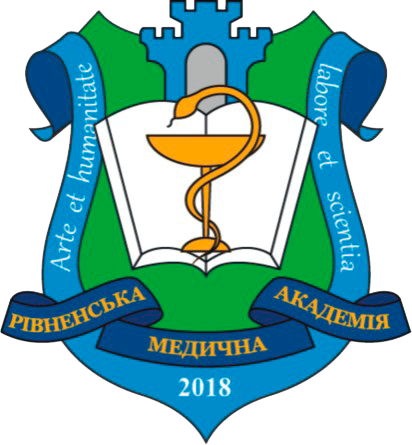THE INFLUENCE OF POST-TRAUMATIC STRESS DISORDERS IN COMBAT CONDITIONS FOR COMBATANTS IN THE CONDITIONS OF WAR IN UKRAINE
DOI:
https://doi.org/10.32782/health-2023.4.28Keywords:
post-traumatic stress disorders, combatants’ mental activity, acute combat mental trauma, prolonged (chronic) combat mental injury, stress factorsAbstract
The purpose of our research is to show the influence of post-traumatic stress disorders in combat conditions for combatants in the conditions of war in Ukraine. Methods of the research. In general, 95 militaries were participated in our research. The place of organizing this stage of the experiment was the Main Military Clinical Hospital (the Center), Kyiv, Ukraine. They were in the age 24-45 years old. At this stage all respondents were included into one experimental group. These militaries were sent for inpatient treatment by the military commissariats of Kyiv to resolve the issue of fitness for military service. All soldiers have been served in the army in the military zone of Ukraine in the south-east of Ukraine (Donetsk, Lugansk and Kherson regions). They all were included by us into experimental group, which was formed by the help of method of randomization. This stage of the experiment was organized in June–August, 2023. Results and their discussion. Post-traumatic stress disorder of combatants occurs in those cases when a person is exposed to a stressor that goes beyond the scope of ordinary human experience (combat of combatants, a serious threat to life or physical integrity, the death of a comrade, injuries or mutilations received of combatants, the killing of others people) and be capable of causing distress to almost everyone. The influence of an extreme stressor leads to the manifestation of post-traumatic stress disorder in the form of the following manifestations: 1. Avoidance – it is the permanent avoidance of stimuli having been associated with the trauma; occurrence of emotional impoverishment; a feeling of indifference to other people. 2. Hyperactivity. 3. Intrusion. A traumatic event by combatants is constantly lost in one of the following ways: there are unexpected feelings that traumatic events are replayed. Conclusions. So, we identified several options for the occurrence of post-traumatic stress disorders in combat conditions for combatants. Acute combat mental trauma. It arises in the rapid and violently changing circumstances of the battle. This trauma was manifested by sharp, but not psychotic, changes in the combatants’ mental activity. The wounded and sick noted her subjective suddenness. Prolonged (chronic) combat mental injury. Stress factors that are arisen stretch over time (from several hours to several weeks). That is, there is the accumulation of emotional tension and negative experiences. At the same time, against the background of emotional tension, some combatants felt insecurity, anxiety and fear, while others felt indifference and depression.
References
Brodsky B.S., Oquendo M., Ellis S.P., Haas G.L., Malone K.M., Mann J.J. The relationship of childhood abuse to impulsivity and suicidal behavior in adults with major depression. The American Journal of Psychiatry. 2001. Vol. 158(11). P. 1871–1877. DOI: 10.1176/appi.ajp.158.11.1871.
Card J. Epidemiology of PTSD in a national cohort of Vietnam Veterans. Journal of Clinical Psychology. № 43(1). 1987. P. 6–17. URL: doi: 10.1002/1097-4679(198701)43:1<6::aid-jclp2270430103>3.0.co;2-x.
Chan J.W.M., Ng C.K., Chan Y.H. Short term outcome and risk factors for adverse clinical outcomes in adults with severe acute respiratory syndrome (SARS). Thorax. 2003. Vol. 58. P. 686–689. DOI: 10.1136/thorax.58.8.686
Corbitt E.M., Malone K.M., Haas G.L., Mann J.J. Suicidal behavior in patients with major depression and comorbid personality disorders. Journal of affective disorders. 1996. Vol. 39(1). P. 61–72. DOI: 10.1016/0165-0327(96)00023-7.
Edwards F., Lee H., Esposito M. Risk of being killed by police use of force in the United States by age, race-ethnicity, and sex. Proceedings of the National Academy of Sciences of the United States of America. 2019. Vol. 116 (34). P. 16793–16798. DOI: 10.1073/pnas.1821204116.
Epstein R., Blake J.J., González T. Girlhood interrupted: the erasure of black girls’ childhood. Washington, DC: Georgetown Law Center on Poverty and Inequality. 2017. URL: https://www.law.georgetown.edu/poverty-inequality-center/wp-content/uploads/sites/14/2017/08/girlhood-interrupted.pdf.tab.
Figley C.R. Trauma and Its Wake. Brunner/Mazel, New York, 1985. 457 p. https://doi.org/10.1002/smi.2460020217
Grunebaum M.F., Oquendo M.A., Burke A.K., Ellis S.P., Echavarria G., Brodsky B.S., Malone K.M., Mann J.J. Clinical impact of a 2-week psychotropic medication washout in unipolar depressed inpatients. Journal of affective disorders. 2003. Vol. 75(3). P. 291–296. DOI: 10.1016/s0165-0327(02)00168-4.
Huang Yung-yu, Oquendo M.A., Friedman Jill M.H., Greenhill L.L., Brodsky B., Malone K.M., Khait V., Mann J.J. Substance abuse disorder and major depression are associated with the human 5-HT1B receptor gene (HTR1B) G861C polymorphism. International Journal of Neuropsychopharmacology. 2003. Vol. 28(1). P. 163–169. DOI: 10.1038/sj.npp.1300000.
Kraus K. Bildung von Lehrerinnen und Lehrern: Herausforderungen in Schule, Hochschule und Gesellschaft. Berlin; Toronto: Budrich UniPress, 2015. S. 145. URL: https://www.pedocs.de/frontdoor.php?source_opus=16736
Mandell B., Pherwani S. Relationship between emotional intelligence and transformational leadership style: a gender comparison. Journal of Business and Psychology. 2003. Vol. 17(3). P. 387–404. URL: https://link.springer.com/article/10.1023/A:1022816409059
Mykhalchuk N., Kharchenko Ye., Ivashkevych Ed., Ivashkevych Er., Nabochuk A. Types of military stress of combatants in the situation of war in Ukraine. Actual problems of education and science in the conditions of war: collective monograph. Compiled by V. Shpak; Chairman of the Editorial Board S. Tabachnikov. Sherman Oaks California: GS Publishing Services. 2023. P.104–121.
Mykhalchuk N., Pelekh Yu., Kharchenko Ye., Ivashkevych Ed., Zukow W., Ivashkevych Er., Yatsjuryk A. Suicidal behavior as a result of maladjustment of servicemen to the conditions of military service in Ukraine. European Journal of Clinical and Experimental Medicine. 2023. Vol. 21(1). P. 90–107. DOI: 10.15584/ejcem.2023.1.12
Murphy N.A., Hall J.A., Hall C.R. Accurate intelligence assessments in social interaction: Mediators and gender effects. Journal of Personality. 2003. Vol. 71(3), June. P. 465–493. DOI: 10.1111/1467-6494.7103008
Onufriieva L., Chaikovska O., Kobets O., Pavelkiv R., Melnychuk T. Social Intelligence as a Factor of Volunteer Activities by Future Medical Workers. Journal of History Culture and Art Research. 2020. Vol. 9(1). P. 84–95. URL: http://dx.doi.org/10.7596/taksad.v9i1.2536.
PTSD: National Center for PTSD. 2022. URL: http://www.ptsd.va.gov/public/PTSD-overview/basics/how-commonis-ptsd.asp





